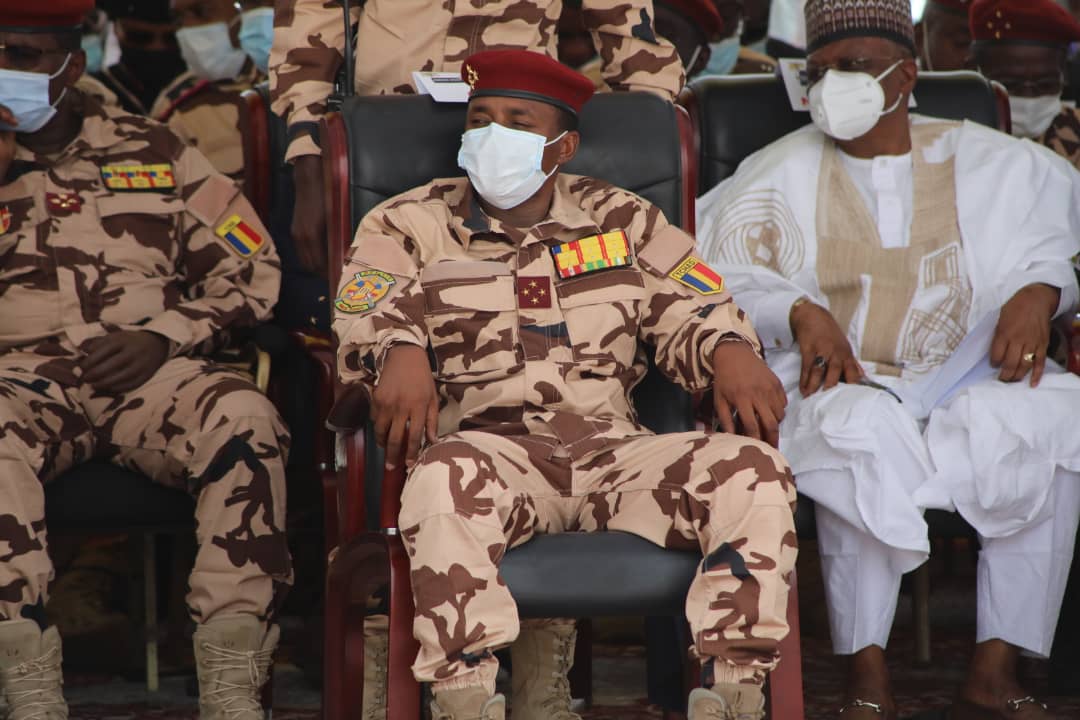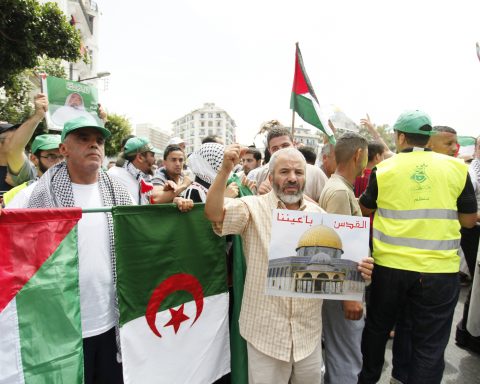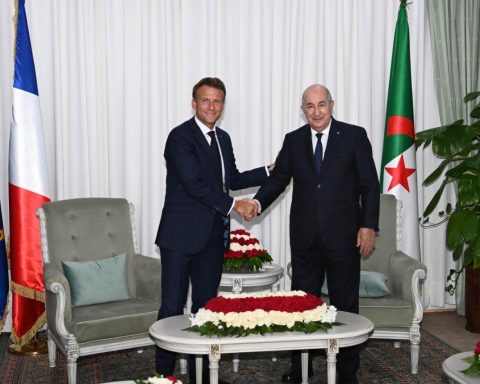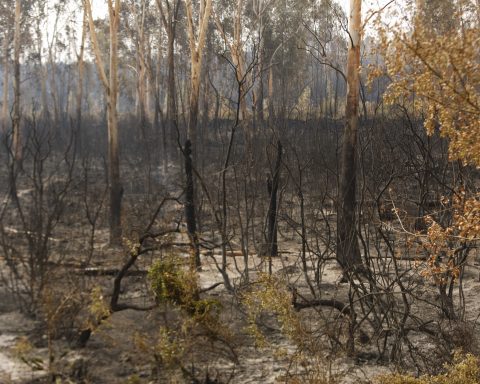The Chadian government and opposition groups launched peace reconciliation talks last month in Doha, Qatar. However, the talks were suspended after representatives from one of the 44 rebel groups decided to leave the Gulf country in a disagreement. This was the first step toward ending the rebellion war against the Transitional Military Council led by the late President Idriss Déby’s son, Mahamat Idriss Déby, following the death of his father on the battlefield in April 2021.
Opposition parties believe the delay reflects the trouble that the Inclusive National Dialogue Organizing Committee is having. They also suspect political maneuvers to extend the transition period further; the inclusion of political-military groups has become vital in the discussion process, as armed violence has been one of the major destabilizing factors in Chad and in the entire African Sahel countries for decades.
Leaders of other armed groups expected to participate in the Doha reconciliation talks may also not be involved because of the absence of trust between Chadian authorities in N’Djamena and these groups. For instance, the Union of Resistance Forces’ group leader, who was reportedly quoted by local media, showing his intention to use the Russian paramilitary mercenary Wagner Group to overthrow the Transitional Military Council in N’Djamena.
Other political parties and armed groups are challenging the council’s legitimacy. Notably, the Reformists are complaining that they weren’t involved in the preliminary discussions. The same goes for civil society platforms such as Wakit Tama.
The Transitional Military Council, nonetheless, could take credit for the return to Chad of opponents and activists, who were hostile to the previous regime. However, critics were worried that this move was driven by the Transitional Military Council’s desire to control the reconciliation process.
Game changer
From this stance, Algeria’s political reconciliation process success story is making Chadian authorities and other neighboring countries in the African Sahel look at them as a model in their political reconciliation aimed at political stability and ultimately economic prosperity.
Last month, Algeria’s Secretary-General of the Association of Scholars, Imams, and Preachers of the African Sahel Countries gave a presentation on the successful experience of national reconciliation in Algeria at the 15th International Conference of the Association in the Chadian capital, N’Djamena. Representatives from eight member states, the President of the Supreme Council for Islamic Affairs and the Mufti of the Chadian Republic participated in the conference, in addition to being the Chadian president’s advisors.
Meanwhile, the President of the Supreme Council of Islamic Affairs of Chad, Mohammed Khater Issa, praised the Algerian model for sharing its pioneering experience, helping Chadian politicians to achieve a breakthrough in the country’s political reconciliation talks process in Doha, Qatar, “in order to establish a state fundamental based on solid foundations that will be capable of taking its place in the world.”
Chronologically, the political violence that sparked in Algeria in the 90s in the aftermath of the January 1992 military coup and the ban of the ex-FIS party, canceled Algeria’s first multi-party parliamentary election when the party was poised for a landslide victory.
As a result, political violence occurred in the country led by Islamist armed groups that put the country into political instability and political reconciliation impossibility, despite some talks attempts between the main opposition parties, FLN party leader, and civil society actors that took place in Rome under the auspices of The Community of Sant’Egidio.
The need for reconciliation
In 1997, the security forces stood by as armed groups committed several large-scale massacres of civilians not far from army outposts, leading to suspicions that the troops had given the nod to such slaughter.
The process began under President Liamine Zeroual’s Administration in 1997 and was later bolstered by late President Abdelaziz Bouteflika in 1999, who expanded on his predecessor’s initiative with the assistance and full support of Zaouia religious leaders in the country. He initiated several steps to boost national reconciliation, including an amnesty to armed groups if they laid down their weapons.
This led to the achievement of a charter for peace and national reconciliation. The charter found a nuanced line offering amnesty for Islamists who committed all but the most violent acts, exoneration for military and security forces, and money for the families of victims of the violence and the families of those who disappeared.
Human rights groups and families of the victims, however, were not happy with the charter and the referendum outcome. They argued that the charter does not mention the duty of the state to investigate serious human rights abuses, prosecute those found to be responsible, or address the rights of families of the disappeared and other victims and their survivors to know the truth and see that justice is done.
Wisdom and political will
Thus, reconciliation, in general, is aimed at a stage of nonviolent, coexistence pattern acceptance where former belligerents come together and set a common interest narrative for the best of the country. Réconciliation processes usually clash with technical and moral imperatives such as the appropriateness of trials, truth commissions, lustration (purges), official apologies, memorials, reparations, amnesties, and other institutions and policies to address the past.
For instance, in South Africa, where political violence was the core of the South African society for decades because of Apartheid policies, the white settler’s minority imposed racist policies on the majority of black Africans as second citizens. Consequently, the country did enter a new era of reestablishing social, political, and economic relations among former ethnic groups enemies, albeit slowly. In this stance, the relations between white colonists and black Africans were never equal, but political leaders like President Nelson Mandela, with his wisdom and the political will of his partners from white leaders like President Frederik de Klerk, who was the founding father of the new South Africa post-apartheid, put emphasis on the criminal element of violence to bring South Africans to co-exist and live peacefully in their country.
So goes the Algerian Reconciliation Charter, launched by former Algerian President Liamine Zeroual and achieved by the late President Abdelaziz Bouteflika, in which Chadian authorities and other African Sahel countries’ leaders are taking Algeria’s political reconciliation charter as a model for peace and reconciliation processes. This includes Algeria’s Zaouias roles in domestic politics, not as a tool of competition with the authorities, but as a breakthrough of a moderate political message toward the authorities.
A strategy the authorities in Algeria have been using to marginalize the radical discourse used by radical Islamist groups is called al-Wasatia, a political sentiment that provides the implementation of the moderate religious discourse called: al-Wasatia, to end a long ideological struggle between two rival schools of thought: Neo-Islamism and Zaouia Reformist.
To sum it up, political reconciliation needs brave politicians and leaders to take a position that goes with a posture that sets reliable partners on a cohesive stage that fortifies the political frame put in place in any reconciliation talks process, not to focus on holding elections. The electoral process is the ultimate goal of the country’s institutional function and political stability. This is what Chadian reconciliation needs and so do its neighboring countries.
Sixty years have passed since these countries’ independence. Yet, they are still living in a violent political environment, where political differences are settled by armed conflict that leads to social structure destruction, poverty, endless political animosity and foreign countries’ inferences.














